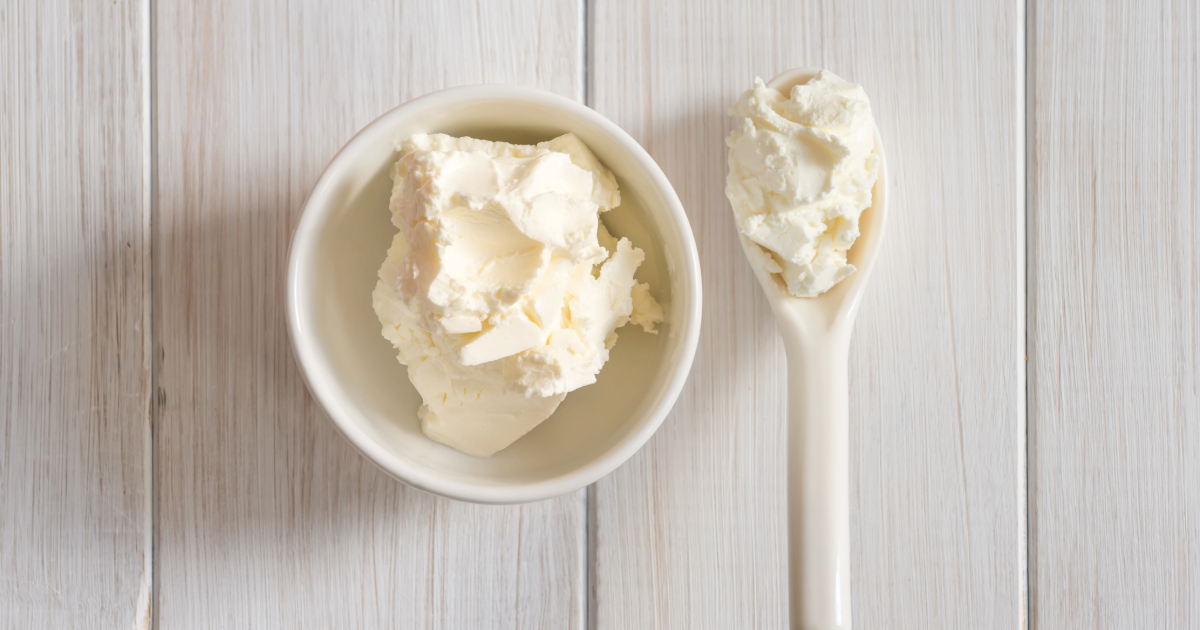Ricotta and mascarpone are two of the most popular fresh Italian cheeses.

They both have a creamy texture and mild, sweet flavor that makes them versatile ingredients in cooking and baking.
However, there are some key differences between ricotta and mascarpone that impact their uses in the kitchen.
What is Ricotta Cheese?
Ricotta is a fresh Italian cheese made from the whey leftover from cheesemaking. The name "ricotta" literally means "recooked" in Italian, referring to the process of reheating whey to produce the cheese.
Ricotta has its roots in traditional Italian cuisine. It likely originated in Sicily, where whey from sheep's milk cheeses was initially used to create ricotta. Over time, cow's milk ricotta became more common. Ricotta is now a beloved ingredient around the world but remains closely associated with Italian cooking.
How is Ricotta Cheese Made?
The process for making ricotta cheese is straightforward:
- Whey is drained off during the production of cheeses like mozzarella or provolone. This whey contains proteins and milk sugars.
- The whey is reheated, often with the addition of milk or cream. An acid like vinegar or lemon juice is sometimes added as well.
- When heated, the proteins in the whey coagulate and form curds that rise to the surface.
- These curds are skimmed off, drained of excess liquid, and pressed into the fresh cheese known as ricotta.
Because it's made from the whey left over from other cheeses, ricotta is considered a highly efficient way to use a byproduct of cheesemaking. Little is wasted in the production process. The simplicity of making ricotta also means it is an affordable and accessible cheese.
What Does Ricotta Cheese Taste Like?
Ricotta has a fresh, milky, and mildly sweet flavor. It is not as rich or buttery as mascarpone. Ricotta often has a slightly grainy texture from the curds, unlike mascarpone's creaminess.
The taste of ricotta is versatile - it pairs well with both sweet and savory ingredients. Its mild flavor serves as a blank canvas, taking on the flavors it is combined with. In desserts, ricotta provides a light creaminess without overpowering other ingredients. In savory dishes, it adds subtle richness and texture.
Factors like the milk variety (cow, sheep, goat), freshness, and drainage can influence ricotta's final flavor. Fresh ricotta has a softer, creamier texture and more delicate flavor than aged ricotta cheese.
Nutrition Facts for Ricotta Cheese
Here is the nutrition profile for a 1-ounce (28g) serving of part-skim milk ricotta cheese [1]:
- Calories: 36
- Fat: 2g
- Saturated fat: 1g
- Carbs: 1g
- Protein: 4g
- Calcium: 7% Daily Value
- Sodium: 40mg
Ricotta is lower in fat and calories compared to mascarpone. Part-skim versions contain around 5-10% milkfat. Whole milk ricotta has a fat content around 18%.
Ricotta is a good source of protein and calcium. It contains little lactose, making it easier to digest than other cheeses for some people. However, those with a milk allergy should still avoid ricotta.
Best Uses for Ricotta Cheese
Thanks to its versatile flavor and texture, ricotta is used in both sweet and savory dishes:
- Lasagna and baked pasta - Ricotta mixed with eggs and herbs is a classic filling between pasta layers.
- Ravioli, manicotti, cannelloni - Ricotta lightens up the filling for stuffed pastas.
- Pizza - Dollops of ricotta add creamy texture and mild flavor atop pizzas.
- Cheesecake and bakery fillings - Ricotta provides a lighter alternative to cream cheese in desserts.
- Pancakes or waffles - Stir ricotta into batter for extra creamy texture.
- Fruit tarts - Spread ricotta into shells and top with fresh fruit.
- Dips - Blend ricotta, herbs, and seasonings for simple, creamy dips.
Key Takeaway: Ricotta is a mildly flavored fresh cheese that works in both sweet and savory dishes thanks to its versatility.
What is Mascarpone Cheese?
Mascarpone is an Italian cream cheese made from cow's milk cream. It has a soft, smooth, spreadable texture and rich, mildly sweet flavor.
The origins of mascarpone likely date back to the 16th or 17th century in the Lombardy region of Italy. The name comes from mascarpa, an Old Lombard word for ricotta cheese.
Today, mascarpone remains an iconic ingredient in Italian desserts. It is sometimes referred to as Italian cream cheese, though it contains more fat and less moisture than American-style cream cheese.
How is Mascarpone Cheese Made?
The process for making mascarpone focuses on coagulating fresh cream:
- Cream is heated to around 180°F (82°C).
- An acidic ingredient like lemon juice, vinegar, or citric acid is added, which causes the cream to curdle.
- The curds are separated from the liquid whey and drained.
- After draining, the curds are cooled, molded, packaged, and refrigerated.
Because it is made solely from the cream of fresh milk, mascarpone has a high fat content around 75%. This gives it a rich, indulgent texture and flavor. The simplicity of the ingredients also results in a fresh, pure taste.
What Does Mascarpone Cheese Taste Like?
Mascarpone has a luxuriously smooth, creamy texture with a mildly sweet and tangy flavor. It is richer than cream cheese with a notable velvety quality when spread or whipped.
The flavor of mascarpone is subtle - many describe it as mild and fresh. The sweetness comes across as delicate rather than cloying.
Unlike ricotta, mascarpone has no graininess. It is considered one of the most decadent fresh cheeses thanks to its high fat content from fresh cream. The flavor and texture of mascarpone make it perfect for desserts.
Nutrition Facts for Mascarpone Cheese
Here is the nutrition profile for a 1-ounce (28g) serving of mascarpone cheese [2]:
- Calories: 100
- Fat: 10g
- Saturated fat: 7g
- Carbs: 1g
- Protein: 2g
- Calcium: 1% Daily Value
- Sodium: 20mg
Mascarpone is high in fat, with 75-80% coming from milkfat. Most of this fat is saturated. Mascarpone also contains cholesterol.
Given the substantial amount of calories and fat, mascarpone is best enjoyed in moderation. However, its rich texture means a little goes a long way in recipes.
Best Uses for Mascarpone Cheese
Thanks to its indulgent qualities, mascarpone is perfect for desserts:
- Tiramisu - Mascarpone is a key ingredient in the filling for this iconic Italian dessert.
- Tarts - Sweetened mascarpone makes an ideal topping for fresh fruit tarts.
- Cannoli - The creamy interior of cannoli shells is often made with sweetened mascarpone.
- Cheesecake - Mascarpone's texture gives cheesecake extra richness.
- Parfaits or trifles - Layers of mascarpone lend decadence to these chilled desserts.
- Frostings or fillings - Mascarpone can be whipped into cake and cupcake frostings.
- Crepes or waffles - Add a touch of luxury by using mascarpone as a filling.
Key Takeaway: Thanks to its luscious texture and mild sweetness, mascarpone is ideal for enhancing desserts and other sweet treats.
Ricotta vs. Mascarpone: Key Differences
Now that we've covered the basics about each cheese, let's compare some of the key differences between ricotta and mascarpone:
Texture
- Ricotta - Ricotta has a grainy, crumbly texture from the curds formed during cheesemaking. It can be creamy when fresh but tends to weep and become drier over time.
- Mascarpone - Smooth, creamy, and rich are the best words to describe mascarpone texture. It is spreadable at room temperature and becomes light and airy when whipped.
Fat Content
- Ricotta - Part-skim ricotta has 5-10% milk fat while whole milk ricotta contains around 18% fat. Ricotta is lower in fat and calories compared to mascarpone.
- Mascarpone - The high fat cream used to make mascarpone gives it between 75-80% milk fat content. This high fat percentage provides its signature richness.
Flavor
- Ricotta - Ricotta has a fresh, delicate, milky flavor. It is mildly sweet and pairs well with both savory and sweet ingredients.
- Mascarpone - The flavor of mascarpone is subtly sweet and tangy, with a rich, buttery quality. It is considered more decadent tasting than ricotta.
Price
- Ricotta - Since it is made from whey, an abundant byproduct, ricotta is relatively inexpensive. Price can range from $3-6 per pound.
- Mascarpone - Because it is made solely from milk cream, mascarpone is pricier, generally between $5-10 for an 8-ounce container.
Uses
- Ricotta - The neutral flavor and creamy texture of ricotta make it extremely versatile in both savory dishes like lasagna and sweet items like cheesecake.
- Mascarpone - The high fat content and mild sweetness of mascarpone make it best suited for desserts like tiramisu, fruit tarts, cannoli filling, etc.
Key Takeaway: While ricotta and mascarpone share some similarities, ricotta has a grainier texture, lower fat content, and more versatile uses compared to creamier, richer mascarpone.
Can You Substitute Ricotta for Mascarpone or Vice Versa?
Given their differing textures and fat content, ricotta and mascarpone are not directly interchangeable in most recipes. However, there are some instances where they can work as substitutes in a pinch:
- In baked goods - Ricotta diluted with milk or cream can be subbed for mascarpone in recipes like cheesecake or cake where the texture differences matter less.
- In cooked dishes - Mascarpone thinned out with milk or water can sometimes stand in for ricotta in lasagna, though the taste will be richer.
- As spreads or fillings - Whipped ricotta or mascarpone may work as substitutes in applications where texture is less critical.
However, for optimal flavor and texture, it is best not to substitute one for the other in recipes specifically developed for either ricotta or mascarpone.
If needed as a substitute, adjust other ingredients in the recipe to account for differences in fat and moisture. And keep in mind that the finished dish may still turn out somewhat different than if using the originally specified cheese.
Key Takeaway: Ricotta and mascarpone cannot be perfectly substituted for one another, but may work in select baked goods if texture and fat content are adjusted for.
FAQs
Is ricotta healthier than mascarpone?
Yes, ricotta is generally the healthier choice between the two. It is lower in calories, fat, and cholesterol than mascarpone. Part-skim versions of ricotta are ideal for limiting fat intake.
Can you freeze ricotta or mascarpone cheese?
Freezing is not recommended for either fresh cheese. Freezing can negatively impact their texture, causing water separation and a gritty or grainy consistency after thawing. Refrigeration is the best storage method.
What milk is used to make ricotta and mascarpone?
Most ricotta and mascarpone sold commercially in the U.S. is made from cow's milk. Varieties may also be made from sheep or goat milk. The type of milk impacts the final flavor and fat content.
Can you make ricotta or mascarpone at home?
While time consuming, it is possible to make both fresh cheeses at home with just a few ingredients. Homemade versions allow you to control the ingredients and customize the flavor.
How long does fresh ricotta or mascarpone last?
If properly stored in the fridge, fresh ricotta and mascarpone typically last between 1-2 weeks past the production date or use-by date printed on the packaging.
Conclusion
Ricotta and mascarpone provide options for adding creamy, fresh flavor to recipes across the culinary spectrum.
Ricotta is mild, affordable, and versatile in both sweet and savory preparations.
Mascarpone imparts decadent richness ideal for desserts and other indulgent dishes.
While they have some textural and flavor similarities, ricotta and mascarpone cannot be used interchangeably in most recipes.

